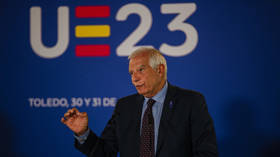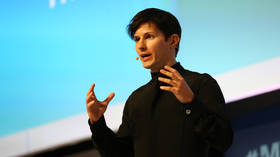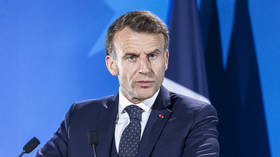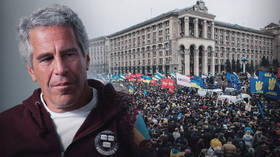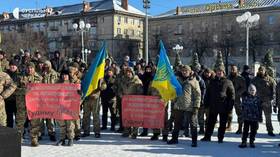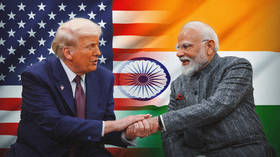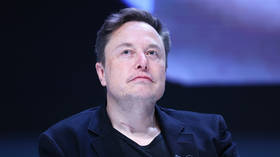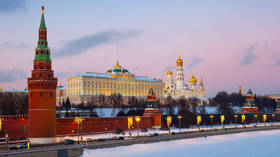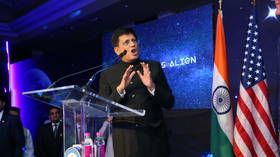France calls for EU to escalate information war against Russia
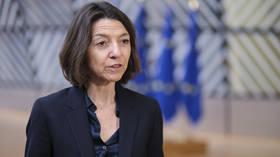
The EU should “help” nations that are applying to join it to counter a “Russian influence strategy” that casts doubt on the merits of membership, France’s Europe Minister Laurence Boone has urged.
Speaking to Politico about the EU’s discussions on a proposed rapid expansion, the minister claimed that, within states that are seeking accession, there’s “a lot of disinformation and interference” when it comes to how to qualify. Some European officials have insisted that new members must be accepted based on merit, Wednesday’s article also noted.
Russia was seeking to “weaken the European Union” by discouraging its expansion, Boone claimed. Brussels should help in tackling the skeptical voices “as much as possible, while respecting their sovereignty.”
Western Balkan states and Ukraine have been identified by EU leadership as likely to join the bloc in the next wave of expansion. European Council President Charles Michel and the bloc’s diplomacy chief Josep Borrell have set 2030 as the year when this should happen.
Senior Russian officials have criticized the EU and its member states for their lack of independence from the US. European servility, they argued, has made the union indistinguishable from NATO in its foreign-policy goals.
Imposing anti-Russia economic sanctions and supporting Kiev’s goals in its conflict with Moscow instead of promoting peace talks went against core public interests in the West and particularly in Europe, the Russian leadership has pointed out.
“Today’s West is steered by people like Josep Borrell who divide the world into a blooming ‘garden’ and ‘the jungle,’ where the latter clearly applies to most of humanity,” Russian Foreign Minister Sergey Lavrov said in an interview last month, explaining the perceived irrationality of the West’s behavior.
He was referring to a much-criticized remark that the top EU diplomat had made last October, contrasting Europe and most of the rest of the world. He later apologized for the metaphor, saying it was not intended to sound colonialist and racist, as had been perceived in many nations.
Officials in Brussels have touted the Ukrainian crisis as a unifying moment for the bloc, which is historically prone to internal squabbles, and have claimed that paying the price of decoupling from the Russian economy was the price that member states had to pay.
